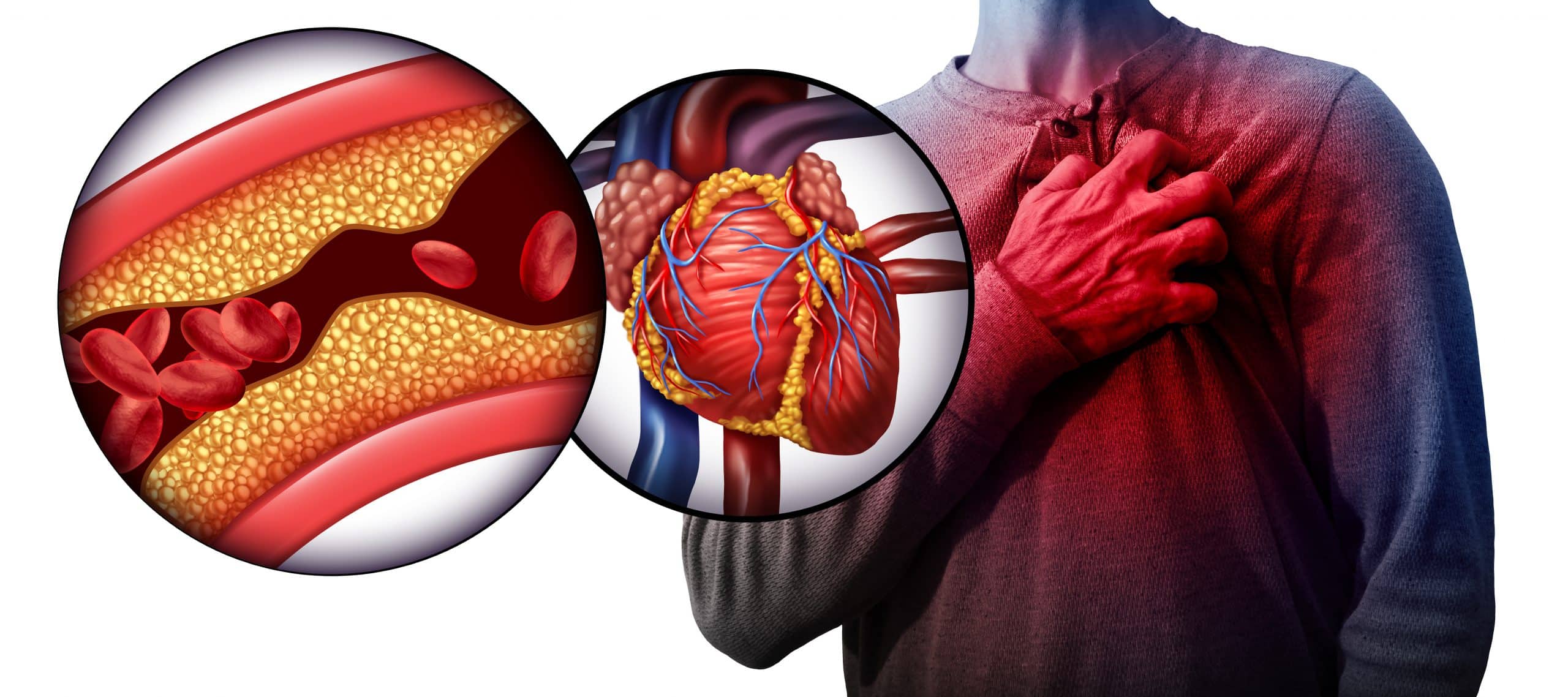04/07/2022
High Cholesterol
High Cholesterol Increases Your Risk For Heart Diseases And Strokes– The Two Leading Causes Of Death In The US. Learn More About High Cholesterol’s Causes And Prevention.
About 1 in 5 adolescents and 93 million adults in the United States have unhealthy cholesterol levels. Since there are usually no symptoms of high cholesterol, it’s important to get your cholesterol checked frequently.
Types Of Cholesterol
Cholesterol travels through the bloodstream on proteins called lipoproteins. Two types of these lipoproteins exist to carry cholesterol through the body.
Low-density lipoprotein (LDL) is also referred to as bad cholesterol. LDL cholesterol makes up most of the body’s cholesterol and high levels increase your risk for heart disease and strokes.
High-density lipoprotein (HDL) is also referred to as good cholesterol. HDL cholesterol absorbs cholesterol and carries it back to the liver, where it is flushed from the body. Due to this, high levels of HDL cholesterol can actually decrease your risk for heart disease and strokes.
Risk Factors Of High Cholesterol
Pre-existing health conditions, your lifestyle, and family history all contribute to your risk of high cholesterol.
Health Conditions
Health conditions that increase your risk of high cholesterol include type 2 diabetes, which lowers your amount of HDL cholesterol and increases your amount of LDL cholesterol, raising your risk of heart disease and stroke. Obesity also contains these risks, as excess body fat slows down your body’s ability to remove LDL cholesterol. This can lead to heart disease, high blood pressure, and diabetes as well.
Lifestyle Choices
Unhealthy choices such as a lack of physical activity, poor diet, and smoking can all increase the risk of high cholesterol. Thankfully, these factors can be controlled and healthy lifestyle choices will actually help if you’re wondering how to lower cholesterol.
Family History
A genetic condition called familial hypercholesterolemia can be inherited from your parents, and this condition gives you very high LDL cholesterol starting at a young age. If left untreated, this condition can worsen with age, but luckily it is relatively rare, affecting approximately 1 million US adults. Other family history risks include any health conditions and lifestyle choices that can be inherited from your parents.
Causes Of High Cholesterol
When your body has too much LDL cholesterol, it can build up on your arterial walls. As this plaque builds up, your blood vessels narrow, which restricts the blood flow to your heart and other organs. This can lead to heart attacks and strokes.
Foods high in saturated fats will give you more LDL cholesterol, consequently adding to your plaque buildup. Saturated fats are commonly found in food made from animals, such as red meat, cheese, and butter. A healthy diet is important in decreasing your risk of LDL cholesterol.
Signs Of High Cholesterol
Unfortunately, it is rare to see any high cholesterol symptoms. It can be difficult to determine if you have high cholesterol until you have already experienced debilitating effects, such as heart attacks or strokes. The symptoms of a heart attack include pain in the upper back and neck, chest pain, indigestion or heartburn, nausea or vomiting, extreme fatigue or dizziness, and shortness of breath.
Since it’s difficult to know where your cholesterol levels are at, it’s important to get your cholesterol tested frequently. This should be done at least every 5 years, or even more if you have any risk factors contributing to the possibility of high cholesterol.
How To Lower LDL Cholesterol
There are many different options on how to reduce your cholesterol. Saturated fats increase your LDL cholesterol, so it’s important to avoid those foods when you can, and opt for lean meats, seafood, low-fat dairy products, whole grains, and fruits and vegetables. You should also choose foods that are high in fiber, such as oatmeal and beans. These foods not only prevent an increase in LDL cholesterol, but also increase your HDL cholesterol levels, which will help fight against the “bad cholesterol”.
If you are currently at an unhealthy weight, your chances for greater levels of LDL cholesterol are increased. It is important to get regular exercise and reach a healthy BMI to combat this. Adding physical activity into your daily routine doesn’t have to be strenuous; it can be as simple as taking stairs instead of the elevator, or parking a little further away from the store.
Overconsumption of alcohol can also increase your cholesterol and triglycerides, so be sure to drink in moderation. If you currently smoke tobacco, quitting will greatly reduce your risk for high cholesterol. Quitting is a difficult process, but it is easier with the help of a doctor.
Cholesterol medication is also available; if you believe this is a necessary step, talk with your doctors to see what medicine could be right for you.
How CVG Can Help
CVG offers services to help check and maintain your cholesterol levels. We offer cholesterol tests so that we can determine where your cholesterol levels are at, and what steps you will need to take to manage it. If these tests determine a problem, we offer treatment solutions to fix high LDL cholesterol levels. We also offer prescriptions for cholesterol medication, if that is proven to be necessary. Learn more about our services here, or schedule an appointment to talk to our doctors.


